Oscar Vault Monday – A Room with a View, 1986 (dir. James Ivory)
So when I first rented this film about seven years ago, I thought it was pretty, but boring. I watched it again last night hoping maybe my opinion would change. This was not the case. There are moments in this film that are truly wonderful, but as a whole it, for me, feels lifeless. It’s a pretty sexy subject, too, so it’s a shame they didn’t find a way to capture that (see The House of Mirth for a film that does it right). The film was nominated for eight Academy Awards, winning three: Best Art Direction (won), Best Costume Design (won), Best Cinematography, Best Adapted Screenplay (won), Best Supporting Actor Denholm Elliott, Best Supporting Actress Maggie Smith, Best Director and Best Picture. The other films up for Best Picture that year were Children of a Lesser God, Hannah and Her Sisters, The Mission and winner Platoon.
I don’t really feel like be the zillionth person to write about Merchant/Ivory and their collaborations, so I suggest you go read about them here.
The film is based on the book of the same name by E. M. Forster about repression and the change in ideas from Victorian England into Edwardian England. We first meet our protagonist Lucy Honeychurch (Helena Bonham Carter) as she opens the windows to her room with no view. This upsets her chaperone, cousin Charlotte (Maggie Smith) greatly. At dinner, this is all the two can talk about. They meet the unconventional father and son Emersons (Denholm Elliott and Julian Sands), who offer to give them their rooms, with a view. Mr. Emerson states that men don’t care what their view is, but women do. Also, his son George begins to flirt with Lucy. In this opening sequence we see both the repression of Victorian England in Charlotte and the open-minded change of the turn-of-the-century in the Emersons, with Miss Lucy caught in the middle.
Lucy then gets her view. The beautiful shots of Italy throughout this segment are quite wonderful, though I do wish the aspect ratio had been super-widescreen. But maybe that’s just me.
Let’s talk about the flawless Miss Helena Bonham Carter, who was twenty years old when this film was released. It’s strange to think that she started out in these kind of films when one looks at her later career. Lucy is a pianist who plays with vigor and passion (as noted by several characters), and who, when with her family is not afraid to speak her mind, but who tends to be quite reserved when on her own. Or, when she does speak her own thoughts to acquaintances, later apologizes for seeming so forward. She’s a mess of contradictions. Helena Bonham Carter was nominated for Best Actress for her work in 1997’s The Wings of the Dove and Best Supporting Actress for 2010’s The King’s Speech.
Maggie Smith plays Lucy’s unmarried cousin and chaperone Charlotte, who’s fully stuck in Victorian snobbery. There are hints of indiscretions in her past, that ended badly and caused her to be the way she is. Her arc throughout the film is one of the most interesting and fully realized. Maggie Smith has been nominated for six Oscars, winning twice: Best Supporting Actress for Othello (1965), California Suite (1978, won), A Room With A View (1986) and Gosford Park (2001), Best Actress: The Prime of Miss Jean Brodie (1969, won) and Travels With My Aunt (1972).
Dame Judi Dench as a small, but important role as a lady novelist who takes some events in Lucy’s life and puts them in her most recent novel. Dench has also been nominated for six Oscars, winning once: Best Supporting Actress: Shakespeare in Love (1998, won), Chocolat (2000), Best Lead Actress: Mrs. Brown (1997), Iris (2001), Mrs. Henderson Presents (2005) and Notes on a Scandal (2006).
I love films that have shots inspired by paintings, this moment between Lucy and George seems like it’s a Mary Cassatt painting or something.
George is a philosopher and believes in acting on his impulses. Lucy has come to find the men, mostly because she has become bored with her cousin. What she finds is something a little bit more. When Charlotte finds the two would-be lovers mid-embrace, she whisks Lucy away and makes her promise not to tell anyone, so as to save both their reputations.
Upon returning to England, Lucy decides to marry Cecil Vyse (Daniel Day-Lewis), a wet blanket if there ever was one. Cecil is a great example of too much culture, too much thought and not enough passion. DDL is wonderful in this role. It’s really hard to hate him because of the actor, but oh man the whole time you just want to yell at Lucy, WHAT ARE YOU DOING?! Day-Lewis would go on to receive five Academy Award nominations for Best Actor, becoming the first to win in that category three times: My Left Foot (1989, won), In The Name of the Father (1993), Gangs of New York (2002), There Will Be Blood (2007, won) and Lincoln (2012, won).
Which is kind of what Rev Beebe (Simon Callow) wants to shout at both of them, but that would be stepping beyond his boundaries. He knows that passion that lies in Lucy (he saw her play the piano) and he knows Cecil is not the person to awaken it in her (he’s also seen her with George).
After becoming engaged we find out that Lucy and Cecil have never kissed (oh those Victorians! try out that car before buying it, Lucy!). When they finally do, it is the most awkward of kisses and ends with Cecil’s glasses getting knocked off his face. Instead of awakening a passion in Lucy, all it does is remind her of the passion she shared with George in Italy.
Cecil, being the dick that he is, decides he wants to mess with his neighbor and invites perfect strangers that he meets at the National Gallery to come rent their house. These strangers wind up being none-other than the Emersons! I really love this shot. I wish the whole film were as gorgeously composed as this shot.
Then we get basically the only scene I remembered from the first time I saw it: naked revelry. This movie is rated PG and it contains a lot of full frontal. A lot. What is going on here? Repressed homosexuality? I’m not sure. I wish the director had been able express some sort of point of view with the scene instead of just presenting it.
Cecil is very upset by this display. Lucy hides her eyes with her umbrella, but once she is away from Cecil she looks. Oh she looks.
Rupert Graves plays Lucy’s brother Freddy and really all I have to say about him is that 1) look at his lips. I want to kiss them. I want someone to kiss them and no one does. 2) That hair! But also, Freddy is an interesting character because he is kind of a mixture of Cecil’s snobbery and George’s free-thinking.
I think the staging here perfectly displays all three of their personalities. George is relaxed, Cecil is stiff and reserved and Lucy is caught in between.
I wish the relationship between George and Lucy had been developed more, because as it stands in the film I don’t really care about any of characters. Actually, that’s the problem with the whole film. Why do I care? I don’t. I do, however, like George’s speech to Lucy. It would have more of an impact, though, if I cared about the characters:
“He’s the sort who can’t know anyone intimately, least of all a woman. He doesn’t know what a woman is. He wants you for a possession, something to look at, like a painting or an ivory box. Something to own and to display. He doesn’t want you to be real, and to think and to live. He doesn’t love you. But I love you. I want you to have your own thoughts and ideas and feelings, even when I hold you in my arms.”
Denholm Elliott is quite wonderful in his role, the free-thinking father whose son wreaks havoc on Miss Lucy and her world view. I wish we had gotten more of him. Elliott was nominated for Best Supporting Actor for this film.
The last sequence of the film, wherein Lucy has broken with Cecil and gone off with George and the two are on their honeymoon, back at the room with a view, is really hot. Like, smokin’ hot. He kisses her boob hot. If the whole film had been as hot as this last sequence of shots, oh man. But like I said, where this film failed, The House of Mirth succeeds. In spades.
Posted on March 18, 2013, in Oscar Vault Monday and tagged 1986, A Room with a View, Daniel Day-Lewis, Denholm Elliott, E.M. Forster, Helena Bonham Carter, James Ivory, Judi Dench, Julian Sands, Maggie Smith, Rupert Graves, Simon Callow. Bookmark the permalink. 10 Comments.





















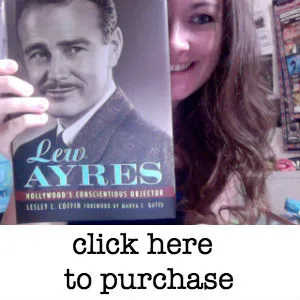

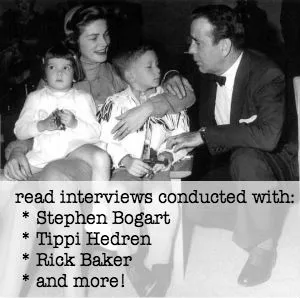
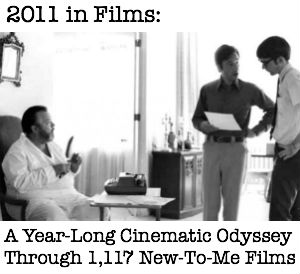
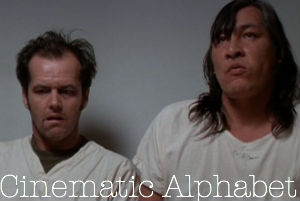

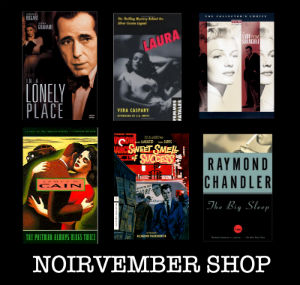








I so vividly remember seeing this in the theater, when I was in high school. I had that same initial reaction, but then ended up watching it again, a few years later,and I enjoyed it a bit more, but not a big love like I had hoped. I sometimes feel it was due to some of the casting, and paring up of characters, that lacked chemistry, or perhaps the pacing of the film itself. It is definitely beautiful – a movie with a view – though.
‘It’s a pretty sexy subject, too, so it’s a shame they didn’t find a way to capture that.’
Do you have any idea how fans respond to A Room? Try watching it as social comedy (which, fundamentally, it is), or with a queer or slash squint – but, ideally, both.
‘What is going on’ in the bathing scene: this scene is a legend of queer movie history. (As a film blog, have you not seen THAT scene in Andrew Haigh’s recent acclaimed gay British indie film Weekend? (http://www.youtube.com/watch?feature=player_embedded&v=wk_bIs2GagU#!) Even for numerous straight female viewers, the scene is ‘my first screen penis’ – though, seeing ARWAV in the UK on its first release back in 1986, I must add that NO ONE back then thought that the dicks – or the PG certificate – were a big deal. In the Eighties, the British Board of Film Censors were far more concerned with ‘video nasties’ like Driller Killer; as, since ARWAV was Merchant–Ivory, and Forster, the attitude was that the whole film must be, de facto, innocuous. In contrast with that view, check out the IMDb boards on ARWAV.
‘I wish the director had been able express some sort of point of view with the scene instead of just presenting it.’ Not sure precisely what you were after (a non-PG certificate?) Ivory *does* – but perhaps you needed to watch his next Forster adaptation, Maurice (coupled with some knowledge of that film’s original intended casting) to get it.
Some clues:
• Merchant and Ivory were cinema’s longest-running (but also, perhaps, subtlest) out gay couple as well as its longest-running producer–director partnership.
• Simon Callow, who played the vicar Mr Beebe, famously self-describes as ‘the only actor who has openly declared my gayness on every possible occasion.’
• Forster was a gay novelist. (Why Cecil is so inappropriate for Lucy, no? Though, to complicate this, some lit crit readings of the novel view Lucy Honeychurch as a disguised boy.)
• The original casting of Merchant–Ivory’s next project, their wonderful, wonderful film of Forster’s posthumously published gay novel Maurice, was to have cast Sands as Maurice – and *did* cast Rupert Graves (unforgettably) as the gamekeeper Alec Scudder who eventually relieves Maurice of his virginity and (following the romantic ending) becomes Maurice’s life partner – in Edwardian England, more than 50 years before any male/male intimate contact was legal in the UK. How much more subtext do you need?
subtext is all well and great, but when you need a giant paragraph for it to actually make sense, you have failed as a filmmaker. I know about Merchant/Ivory as out filmmakers, which is part of why I feel like this film is such a failure. They didn’t got far enough. and “try watching at as. . .” No. No matter how I “watch it as,” it’s a film that is mis-paced and at times miscast, if well intended.
This is one of my favorite films and I enjoyed reading your take on it. For me it’s a comedy as much as a romance. E.M. Forster, like Shakespeare, knows that to take the English out of the English they need a hotter climate, here Italy and in other stories, India. The street fight and murder witnessed by George and Lucy is the thing that ties them together. The sudden flaring of temper that defies logic, (as the murderer was weeping and embracing the body of the friend he just killed), the nearly instantaneous funeral procession, this is thrilling and dangerous and reminds them that life is short. Lucy tries to ignore it all as a well brought up woman should. George doesn’t ask her to lie about it; he shields her from seeing the bloodied post cards but tells her about them. However her wonderfully meddling cousin Charlotte asks her to lie later and that’s where all the problems start, good people being dishonest.
I love the nude bathing scene, it’s so delightfully chaotic. The temptation of a cool dip on a hot summers day is enough to entice even the vicar to shed his clothes. It gives you a feeling for the restrictive clothing that these people had to wear day in and day out and is symbolic of the restriction of Edwardian times. I think the point is very clear – the most important men in Lucy’s life all get together here and show their true selves. Her playful younger brother, the trusted vicar who is a bit of a father figure to Lucy, and handsome George, all getting along with Cecil on the sidelines. Mr Beebe, Freddie and George are completely unpretentious in contrast to Cecil. Freddie and George have indeed just met and yet are perfectly at ease in this sporty display of masculinity and camaraderie. Cecil has already shown that he doesn’t like Freddie. You can’t imagine Cecil doing anything of the kind and it is he, not Lucy or her mother, who seems most shocked by encountering the naked men, they are laughing after all and Cecil is swashbuckling his way through the ferns in an attempt to protect their innocent eyes. It’s hilarious.
DDL is brilliant in his pince-nez fussiness and also very funny in the little bits of business scenes like with the bee and the clattering tea cup, and his dodging the tennis balls while reading Elinor Lavish (note how he pronounces her name in a fake Italian flourish compared with the flat way Charlotte does.) I sometimes think this is my favorite DDL role.
The Kiri Te Kanawa soundtrack is the best use of opera in a film for me as well.
I do care about Lucy Honeychurch, I want Freddie to have a great brother in law. Yes, the end is very hot but they are on their honeymoon, it’s private and it’s the Ewardian era, so it’s enough for me.
Great post, I pretty much agree with what you have said. I do think the soundtrack is beautiful to this film.
I like this film but it is does feel as if its too staged. Some moments come alive, however, and all its a pleasant way to drift through an evcenig. I agree that Freddy is very, very kissable. And I would have loved to splash around in that pool with the lads. LOL
Lucy Honeychurch !
Get me a part of this angels’ treasure!
Lead me to where she lies at leisure!
Get me a scarf from her neck: aspire
To a garter, that’s my heart’s desire.
To Lucy Honeychurch !
“A rain of flowers descended
(sweet in the memory)
from the beautiful branches into her lap,
and she sat there
humble amongst such glory,
covered now by the loving shower…”
“Da’ be’ rami scendea
(dolce ne la memoria)
una pioggia di fior’ sovra ‘l suo grembo;
et ella si sedea
humile in tanta gloria,
coverta già de l’amoroso nembo…”
Pingback: A Room With a View- The differences in characters while in Rome vs. England. | Mie Belle Avventure
Pingback: UWAGA! Rękopisy nie płoną, ale znikają w ziemi - BLOG - PasjaPisania.pl